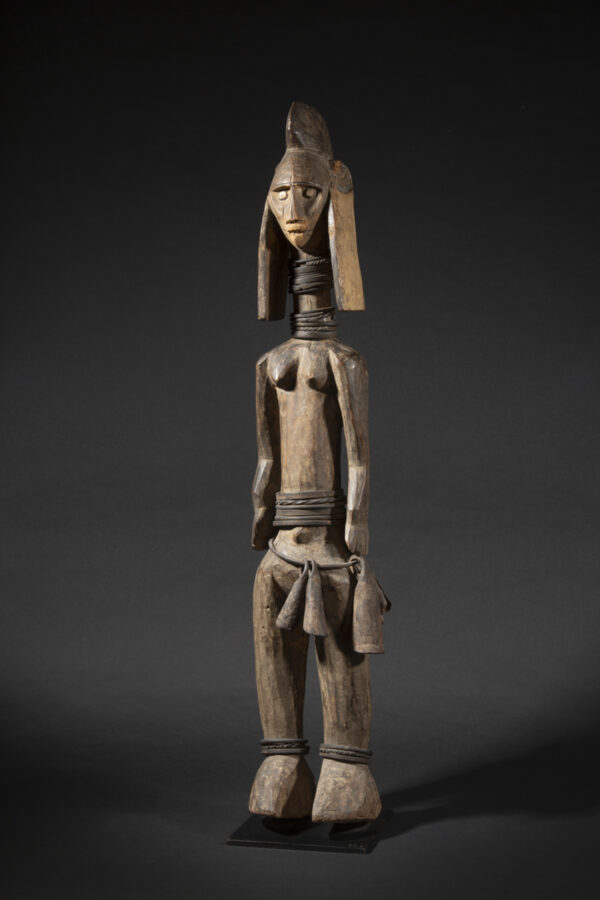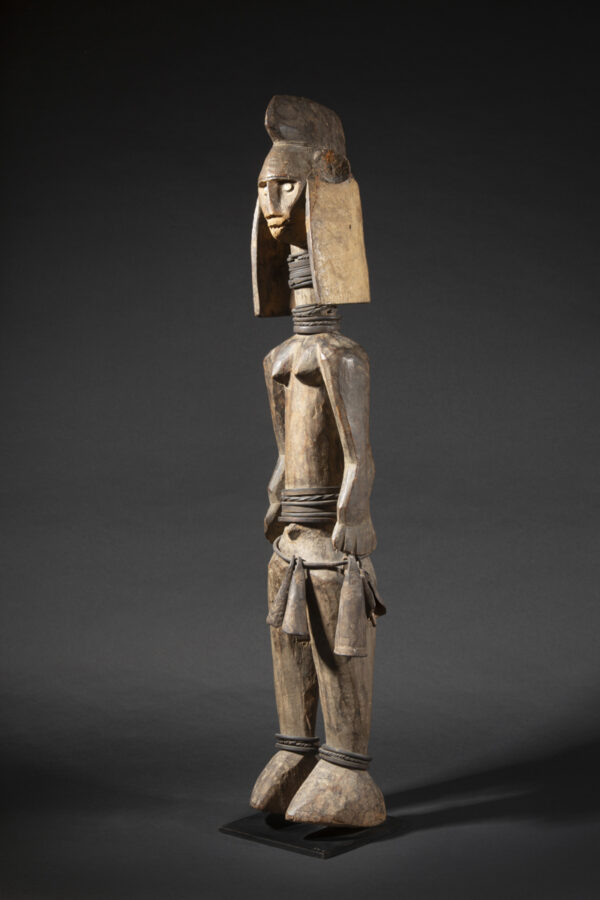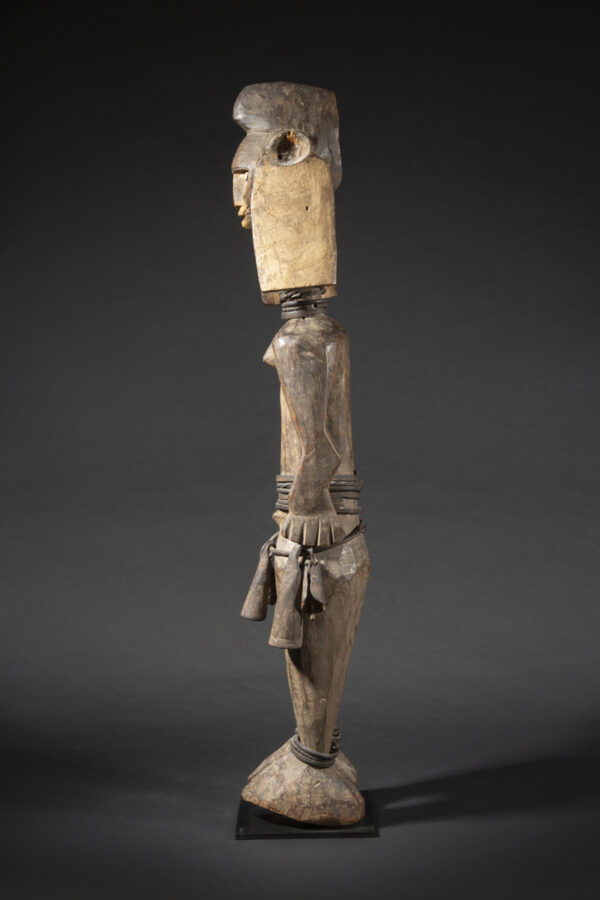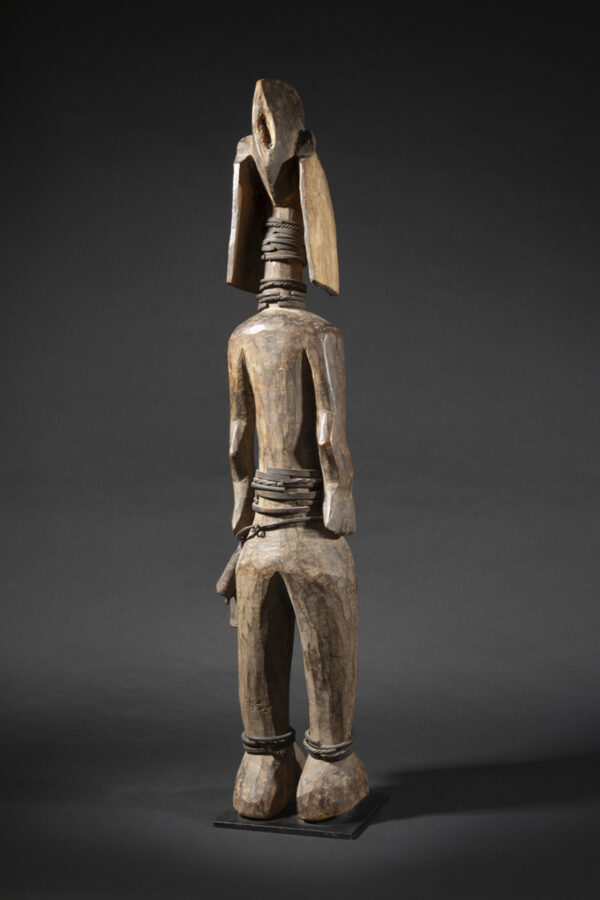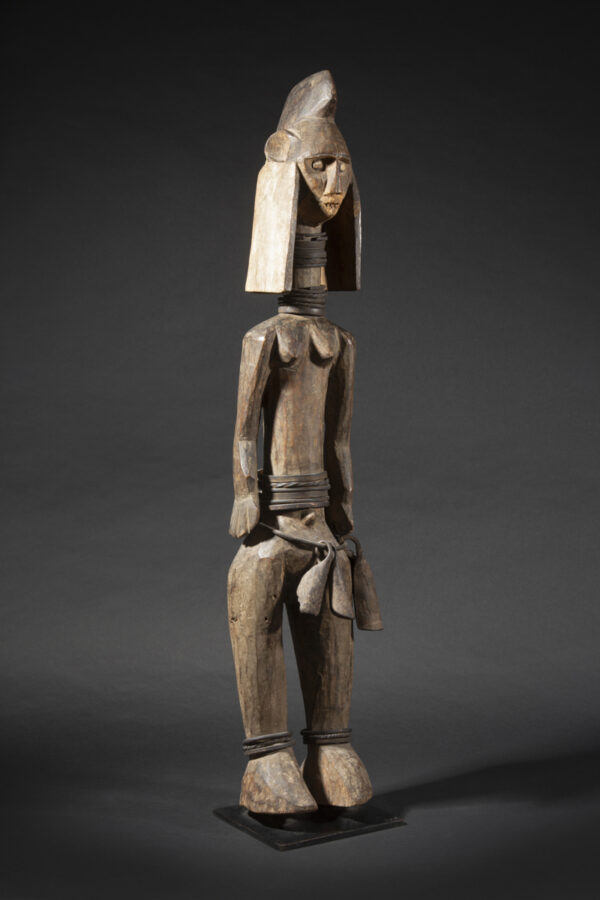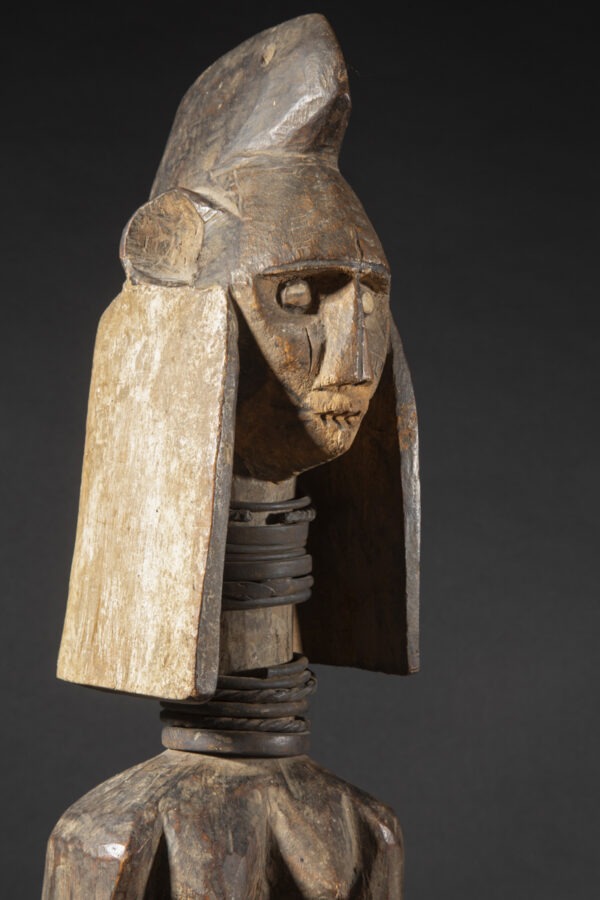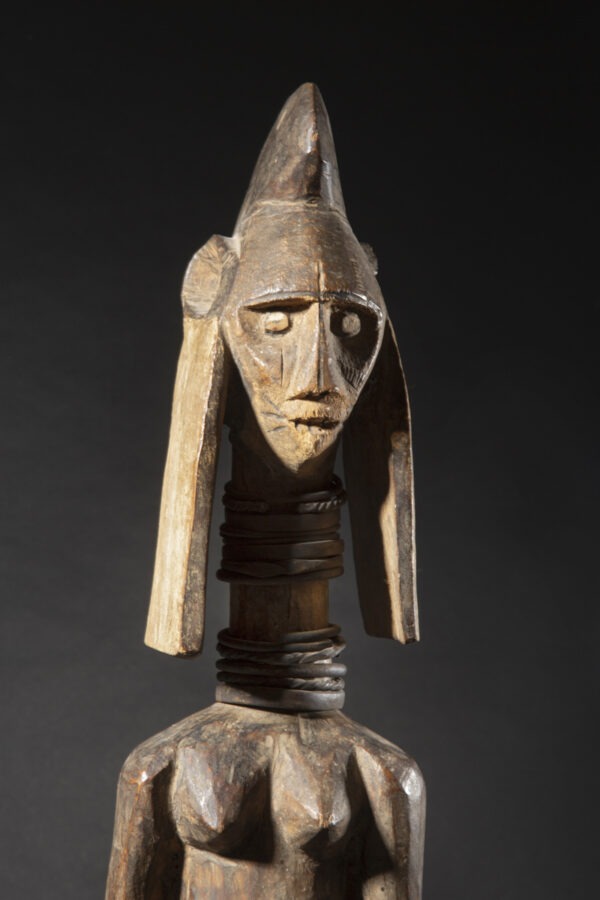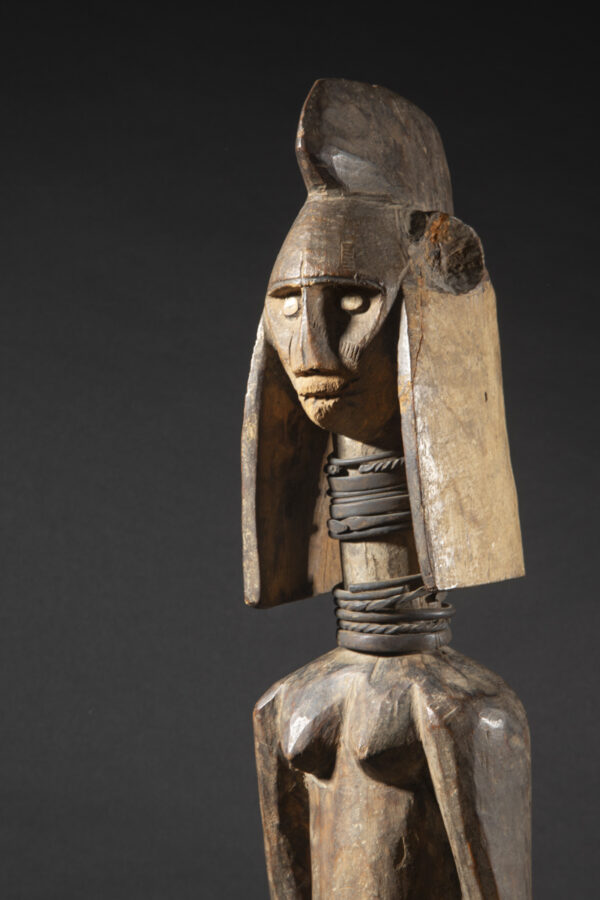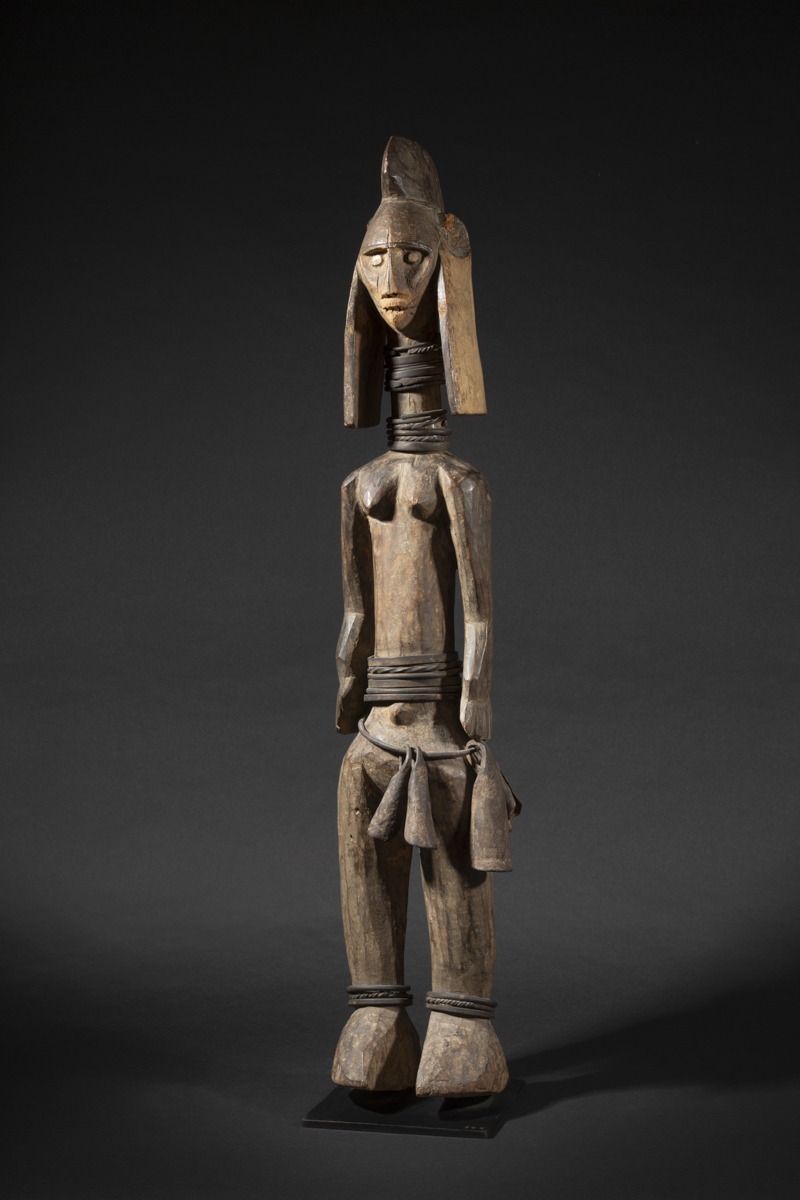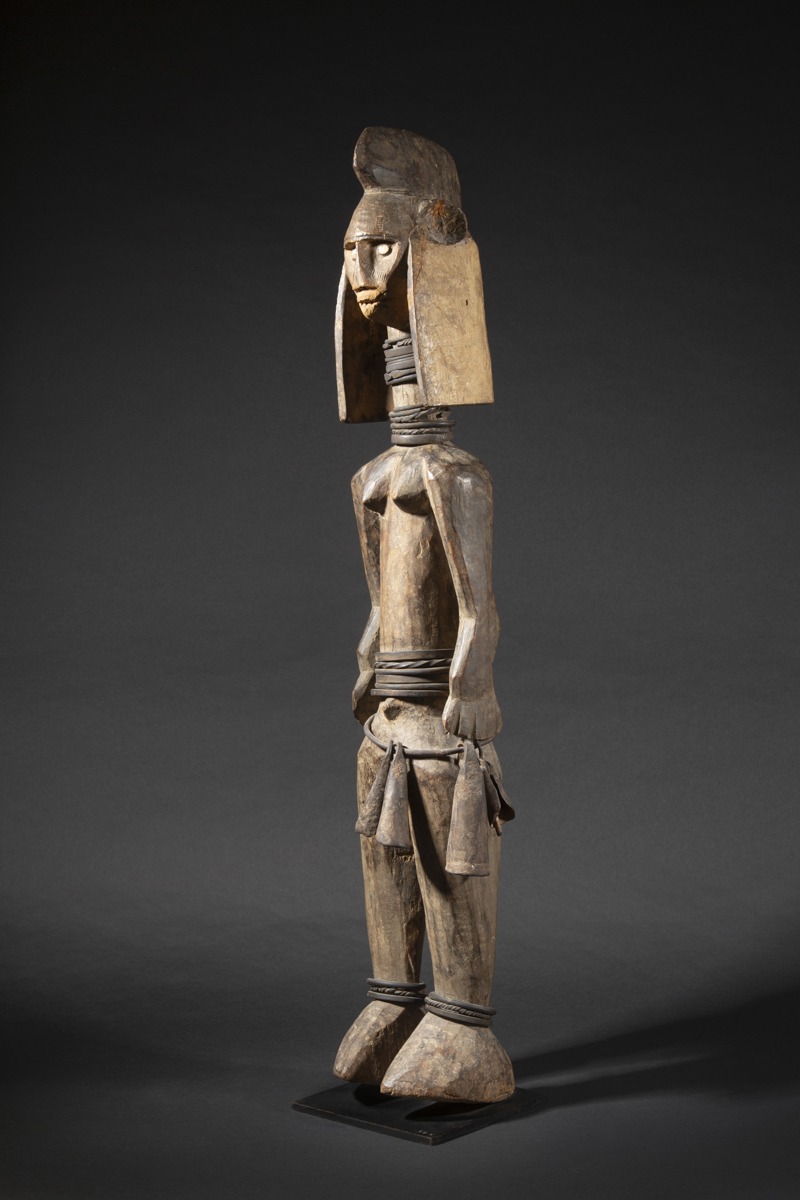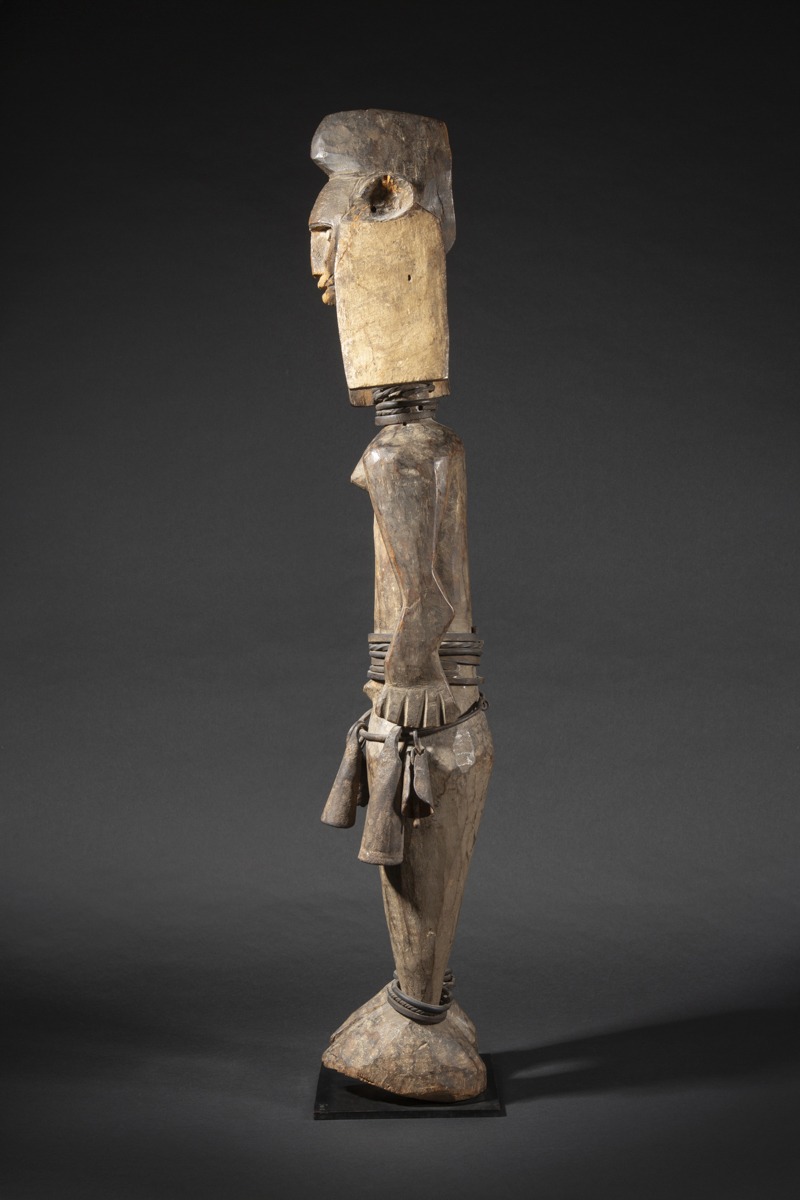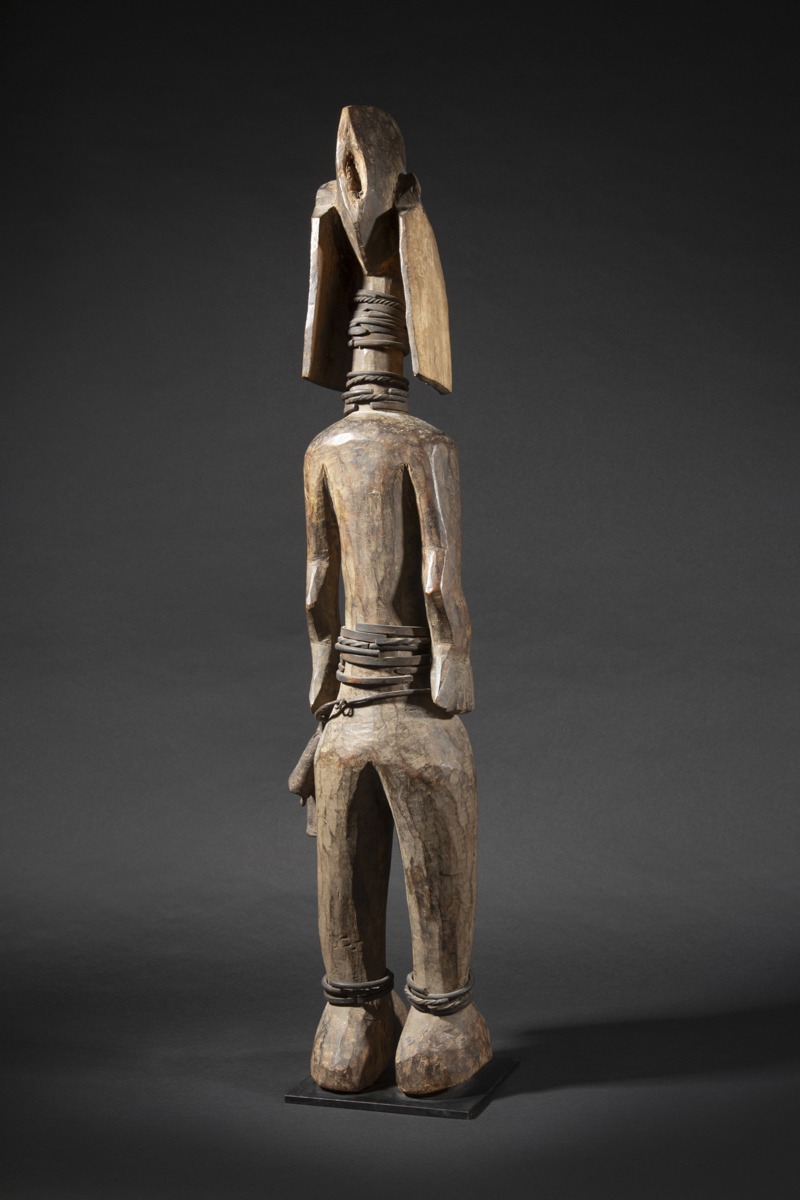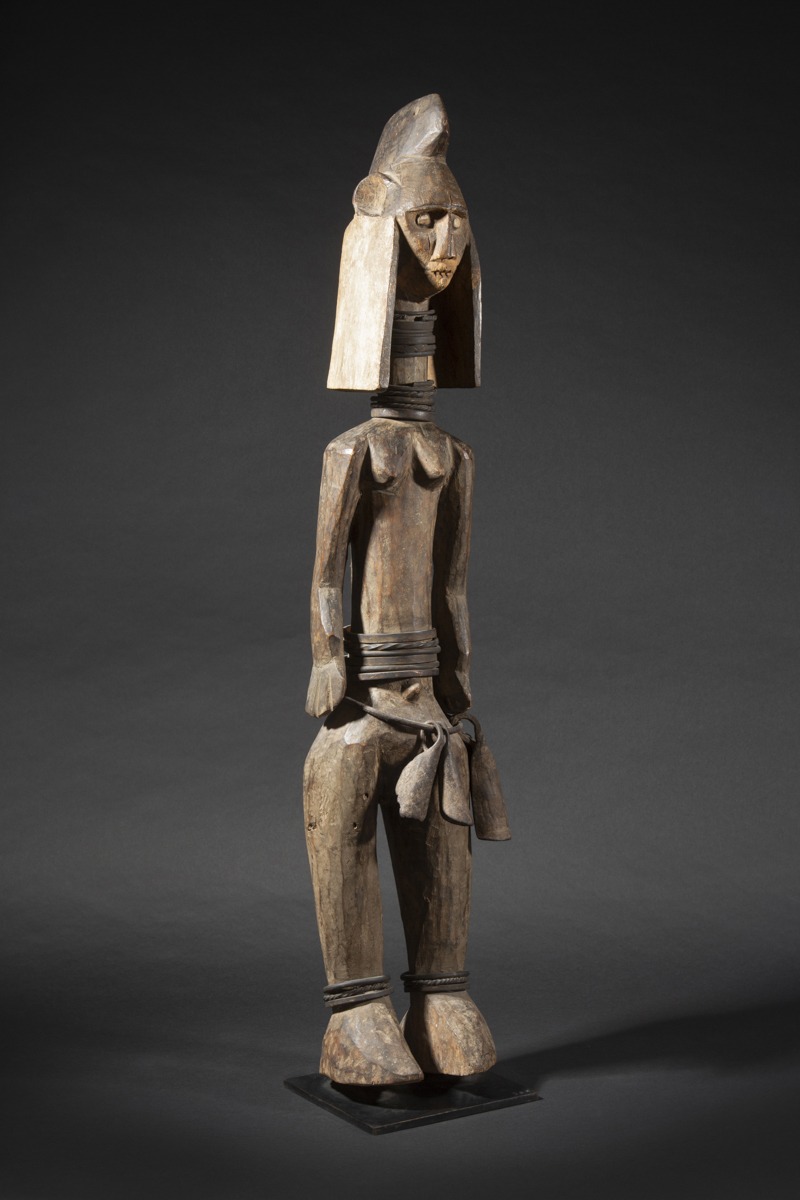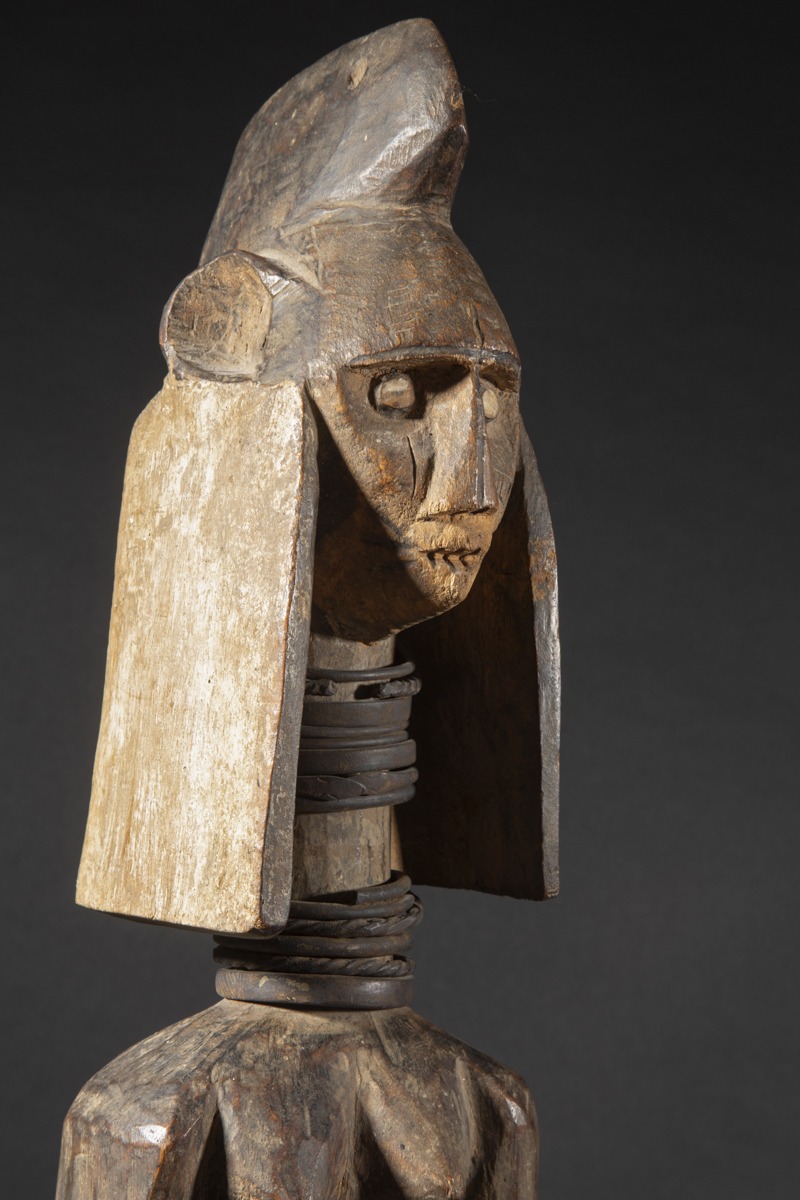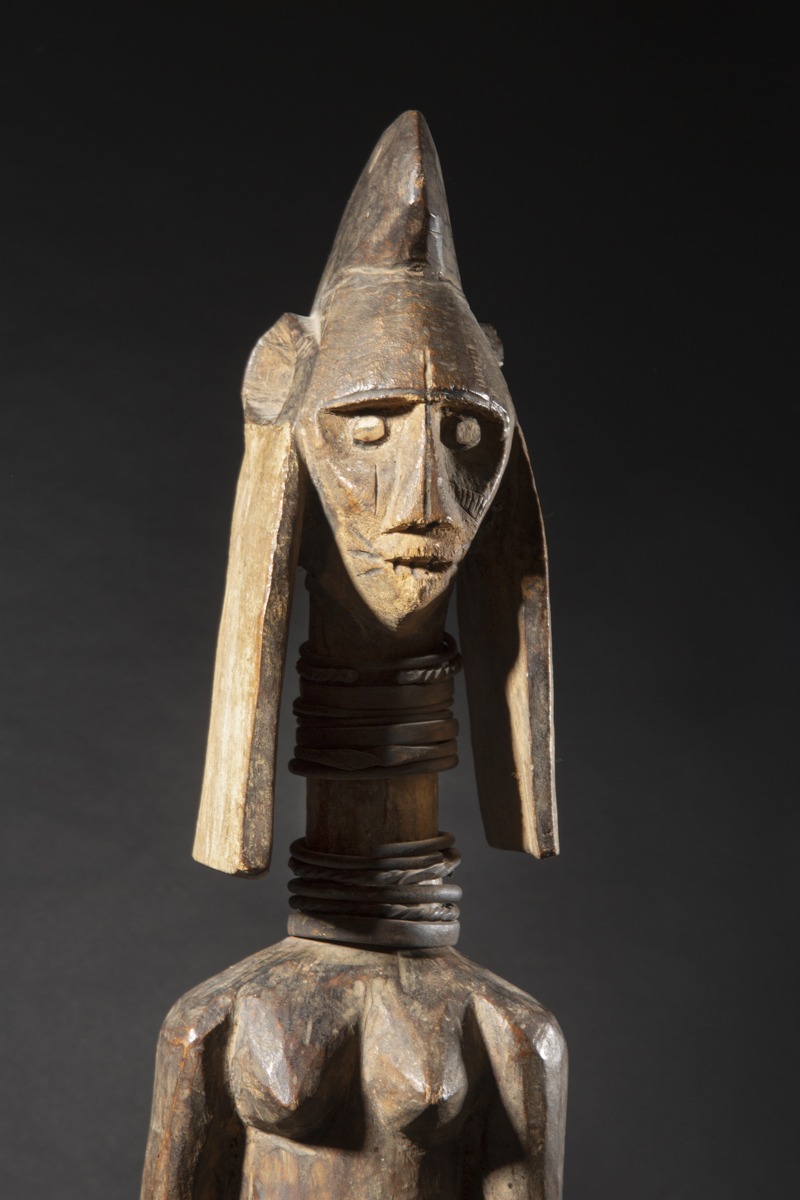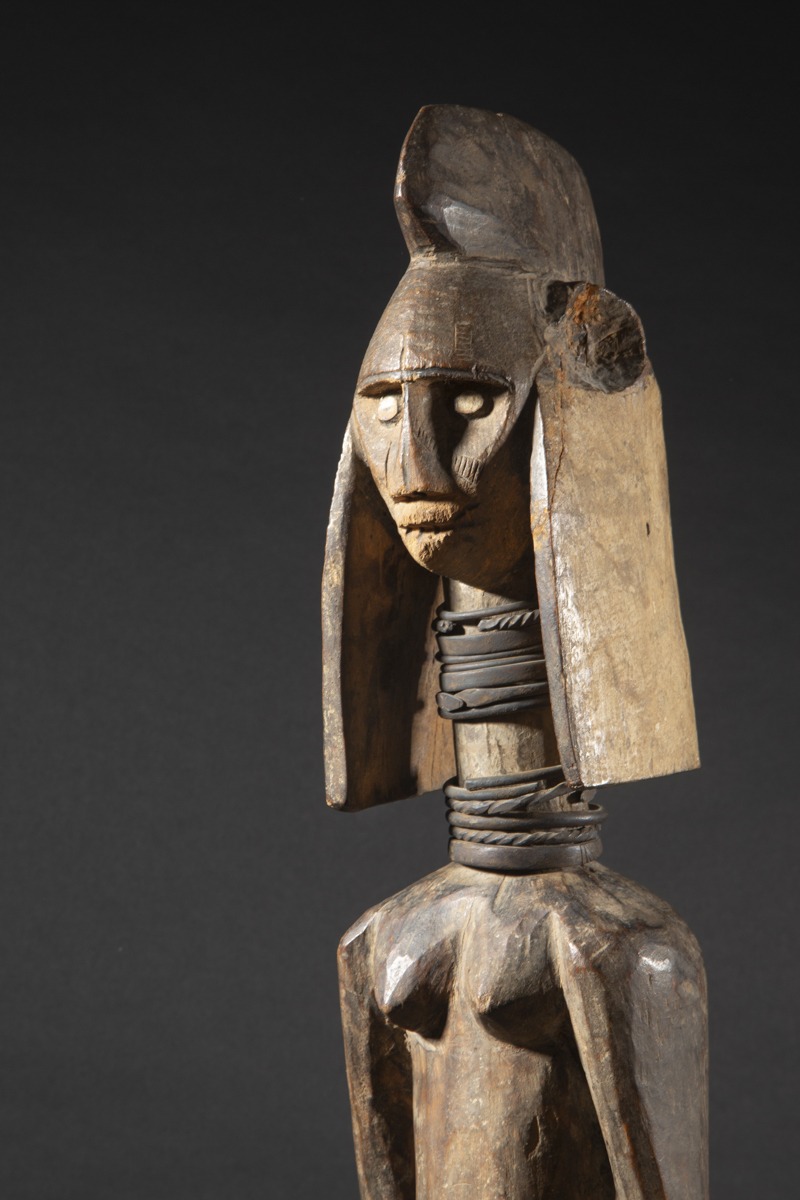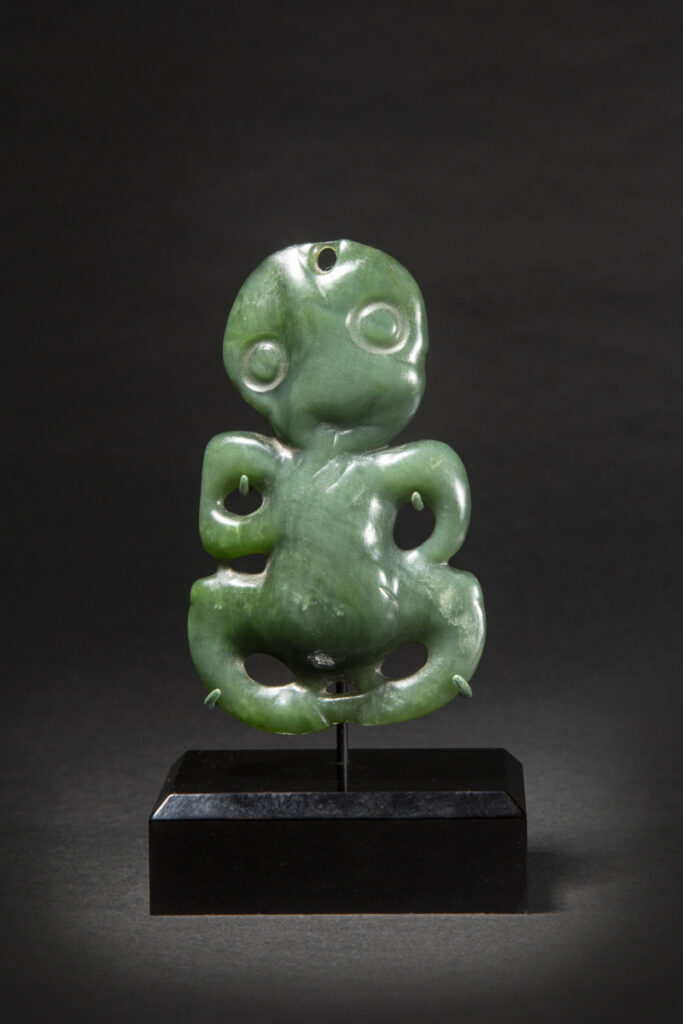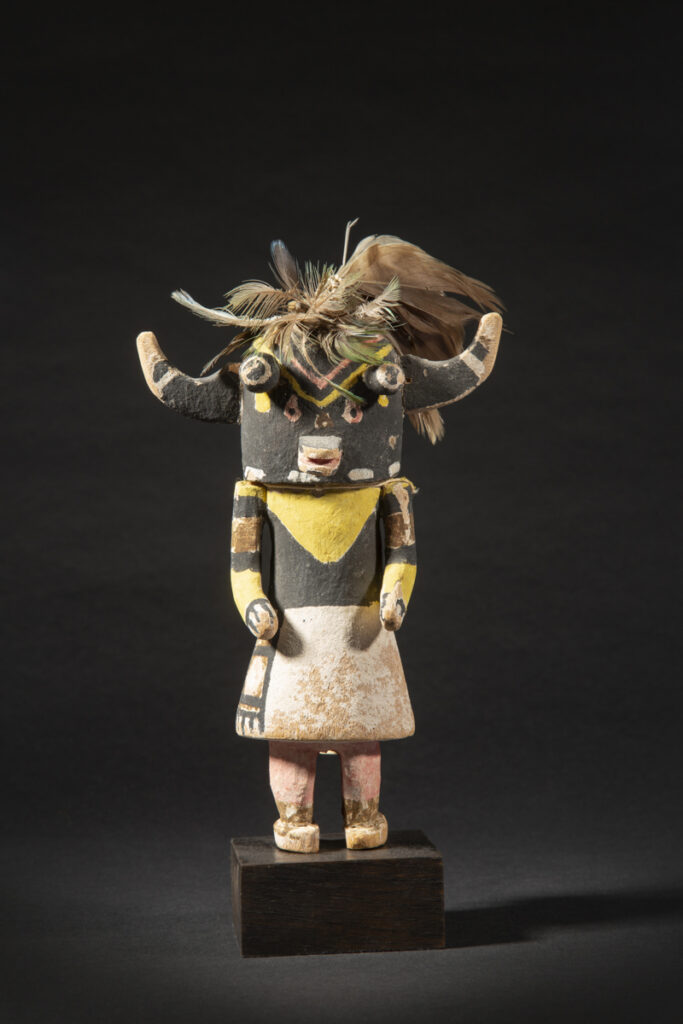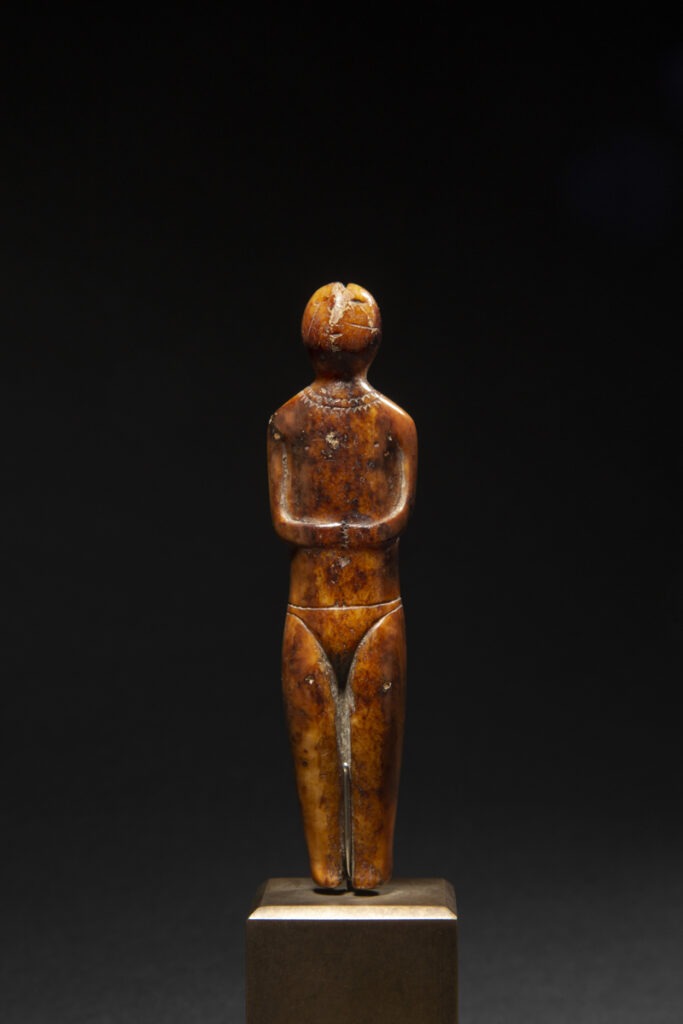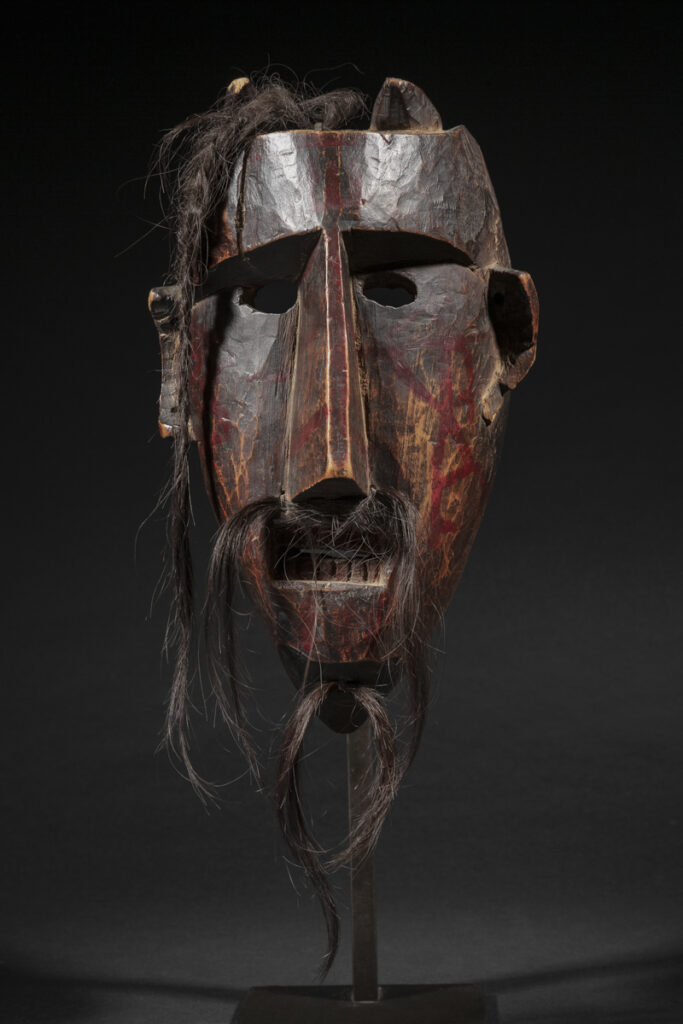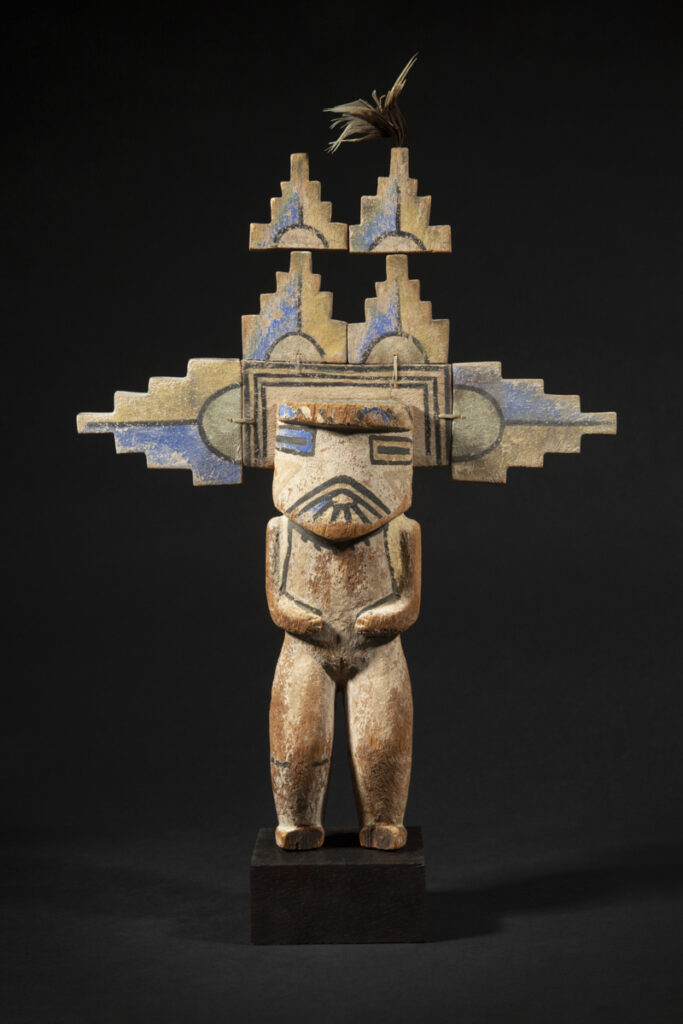Africa | Nigeria
Mumuye Figure
Nigeria
Early 20th century
Carved wood, metal and pigments
Height: 82 cm – 32 ¼ in.
Provenance
Collection William W. Brill (1918-2003), New York (inv. #50X)
By family descent
Sotheby’s, New York, «The William W.Brill Collection of African Art», 17 Nov. 2006, lot 61
Collection Leridon, Paris, acquired at the above sale
Mumuye Figure Brill 82 cm / Galerie Flak
Price on request
The Mumuye people, numbering approximately 400,000 farmers, inhabit the foothills of the Shebshi Mountains in an isolated region along the Benue River in eastern Nigeria, near the border with Cameroon.
Jacques Kerchache highlighted in "L’Art Africain" (Citadelles et Mazenod, 1988) that « Mumuye statuary does not depict ancestors but rather incarnates tutelary spirits. Yet, statues reinforce the status and prestige of their owner who, as he holds them in his hands, has a dialogue with them and thus ensures his personal protection.»
According to Belgian anthropologist Jan Strybol, a pioneer in the study of Benue region cultures, figurative sculpture played a fundamental role in Mumuye society. It enhanced the influence and reputation of chiefs and religious specialists by supporting their divinatory practices, healing rituals, and prayers for rain.
This Mumuye figure stands out for the geometric treatment of its facial features, its prominent sagittal crest, and its long closed ears enhanced with kaolin. Additionally, the figure is adorned with numerous metal ornaments in the form of necklaces and bracelets, a highly uncommon characteristic in Mumuye statuary.
Few examples of Mumuye figures in this style are known. A closely related example can be found in the collections of the Detroit Institute of Arts (DIA), Michigan, USA (Inventory no. 73.214, acquired in 1973). Another comparable piece is a ceremonial gong featuring a similar facial construction (central crest, solid rectangular ears, and naturalistic features) housed in the National Museum of African Art, Smithsonian Institution, Washington, D.C., and published in "Mumuye: Sculpture from Nigeria. The Human Figure Reinvented" by Frank Herreman, 2016, page 36, fig. 23.
Our figure originates from the collection of William W. Brill (1918–2003), New York City (Inventory no. 50X).
William Brill was a philanthropist and businessman involved in real estate, construction, and insurance.. He also served on the board of the Museum of African Art in New York City. Brill acquired his first piece of African art in 1950 and began collecting more extensively after a business trip to Nigeria in 1960. His collection was later inherited by his son, who sold the African art sculptures, including this Mumuye figure (lot 61), at Sotheby’s New York in November 2006.
This Mumuye figure exudes remarkable presence and power.
Jacques Kerchache highlighted in "L’Art Africain" (Citadelles et Mazenod, 1988) that « Mumuye statuary does not depict ancestors but rather incarnates tutelary spirits. Yet, statues reinforce the status and prestige of their owner who, as he holds them in his hands, has a dialogue with them and thus ensures his personal protection.»
According to Belgian anthropologist Jan Strybol, a pioneer in the study of Benue region cultures, figurative sculpture played a fundamental role in Mumuye society. It enhanced the influence and reputation of chiefs and religious specialists by supporting their divinatory practices, healing rituals, and prayers for rain.
This Mumuye figure stands out for the geometric treatment of its facial features, its prominent sagittal crest, and its long closed ears enhanced with kaolin. Additionally, the figure is adorned with numerous metal ornaments in the form of necklaces and bracelets, a highly uncommon characteristic in Mumuye statuary.
Few examples of Mumuye figures in this style are known. A closely related example can be found in the collections of the Detroit Institute of Arts (DIA), Michigan, USA (Inventory no. 73.214, acquired in 1973). Another comparable piece is a ceremonial gong featuring a similar facial construction (central crest, solid rectangular ears, and naturalistic features) housed in the National Museum of African Art, Smithsonian Institution, Washington, D.C., and published in "Mumuye: Sculpture from Nigeria. The Human Figure Reinvented" by Frank Herreman, 2016, page 36, fig. 23.
Our figure originates from the collection of William W. Brill (1918–2003), New York City (Inventory no. 50X).
William Brill was a philanthropist and businessman involved in real estate, construction, and insurance.. He also served on the board of the Museum of African Art in New York City. Brill acquired his first piece of African art in 1950 and began collecting more extensively after a business trip to Nigeria in 1960. His collection was later inherited by his son, who sold the African art sculptures, including this Mumuye figure (lot 61), at Sotheby’s New York in November 2006.
This Mumuye figure exudes remarkable presence and power.
Publication
Explore the entire collection
